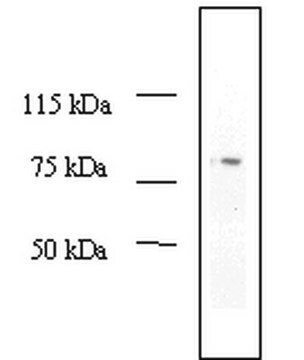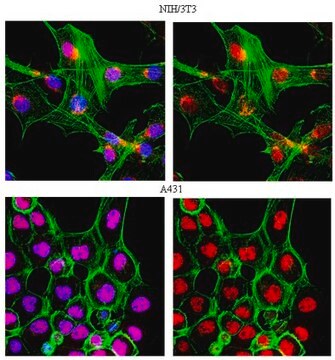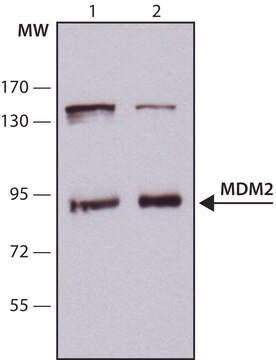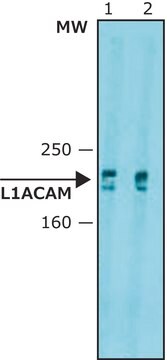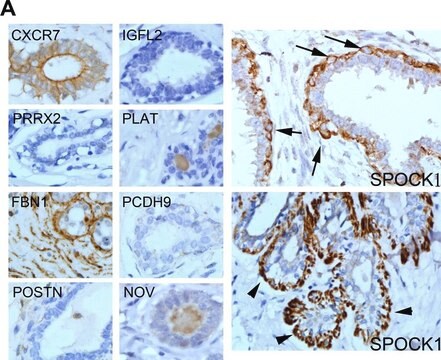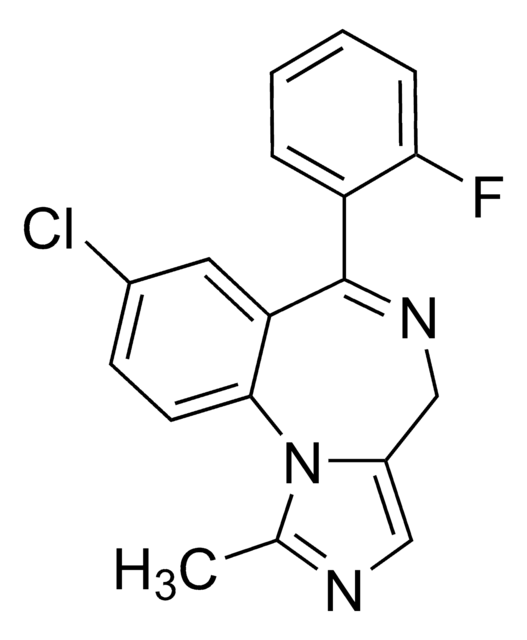OP143
Anti-MDM2 (Ab-3) Mouse mAb (4B11)
liquid, clone 4B11, Calbiochem®
Synonim(y):
Anti-Ubiquitin Protein Ligase, Anti-p53 Binding Protein, Anti-Murine Double Minute Chromosome-2
About This Item
Polecane produkty
pochodzenie biologiczne
mouse
Poziom jakości
forma przeciwciała
purified antibody
rodzaj przeciwciała
primary antibodies
klon
4B11, monoclonal
Postać
liquid
nie zawiera
preservative
reaktywność gatunkowa
mouse, human
producent / nazwa handlowa
Calbiochem®
warunki przechowywania
OK to freeze
avoid repeated freeze/thaw cycles
izotyp
IgG2a
Warunki transportu
wet ice
temp. przechowywania
−20°C
docelowa modyfikacja potranslacyjna
unmodified
informacje o genach
human ... MDM2(4193)
mouse ... Mdm2(17246)
Opis ogólny
Immunogen
Zastosowanie
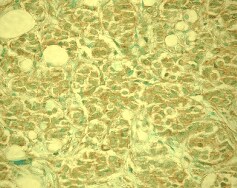
Immunoblotting (2 g/ml, chemiluminescence)
Immunofluorescence (1 g/ml)
Immunoprecipitation (1 g/reaction)
Paraffin Sections (2.5 g/ml, heat pre-treatment required)
Opakowanie
Ostrzeżenie
Postać fizyczna
Rekonstytucja
Komentarz do analizy
A549 cells
Inne uwagi
Barak, Y., et al. 1993. EMBO. J.12, 461.
Ladanyi, M., et al. 1993. Cancer Res.53, 16.
Leach, F. S., et al. 1993. Cancer Res.53, 2231.
Oliner, J. D., et al. 1993. Nature362, 857.
Momand, J., et al. 1992. Cell69, 1237.
Oliner, J. D., et al. 1992. Nature358, 80.
Fakharzadeh, S. S., et al. 1991. EMBO. J.10, 1565.
Informacje prawne
Nie możesz znaleźć właściwego produktu?
Wypróbuj nasz Narzędzie selektora produktów.
Kod klasy składowania
10 - Combustible liquids
Klasa zagrożenia wodnego (WGK)
WGK 3
Certyfikaty analizy (CoA)
Poszukaj Certyfikaty analizy (CoA), wpisując numer partii/serii produktów. Numery serii i partii można znaleźć na etykiecie produktu po słowach „seria” lub „partia”.
Masz już ten produkt?
Dokumenty związane z niedawno zakupionymi produktami zostały zamieszczone w Bibliotece dokumentów.
Nasz zespół naukowców ma doświadczenie we wszystkich obszarach badań, w tym w naukach przyrodniczych, materiałoznawstwie, syntezie chemicznej, chromatografii, analityce i wielu innych dziedzinach.
Skontaktuj się z zespołem ds. pomocy technicznej